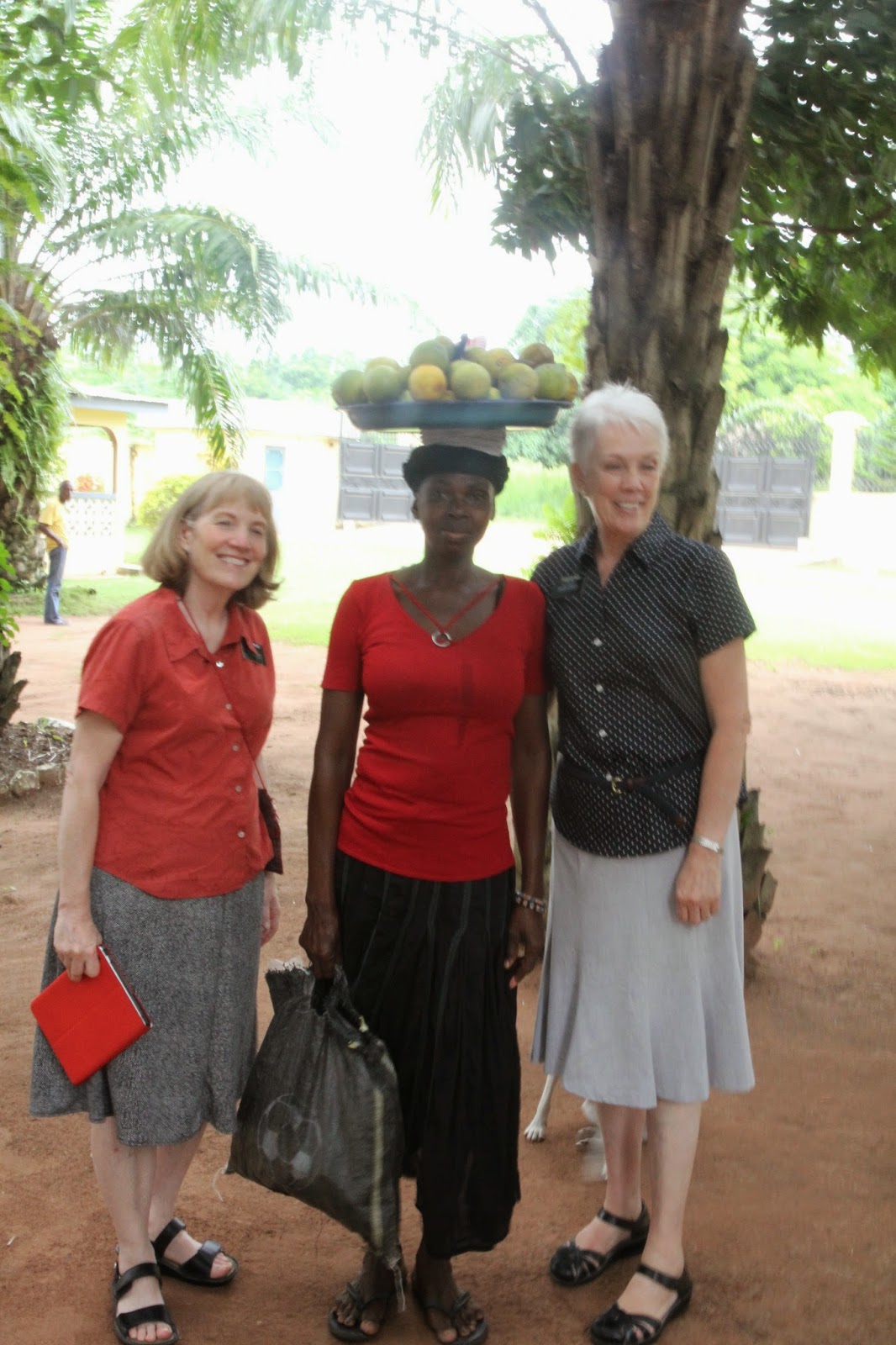The fishermen in Africa fish much the way their great great
grandfathers did centuries ago, using nets. It is the main occupation of the
people in Cape Coast. We saw men fixing their long green nets as
they sat in their boats preparing to go out to sea. There were many pastel colored fishing boats lining the beach.
It takes over 60 strong men to pull the catch in. As they pull them in you can
hear them heave ho as they chant or sing in unison to get the rope going the
way they want it to go. Their hands are worn with rope marks. There are two men
(younger ones) who wind the end of the rope around the trees on the shore to
keep the rope from going back the wrong way with the strong waves in the water.
As I was down getting a closer look, I accidently got too far out and a big
wave came and got my skirt all wet. After hauling them in they are divided the
catch. The owner takes most of the fish but the workers are given some fish to
eat. It takes hours to pull the catch in and it is hard work.























.JPG)












